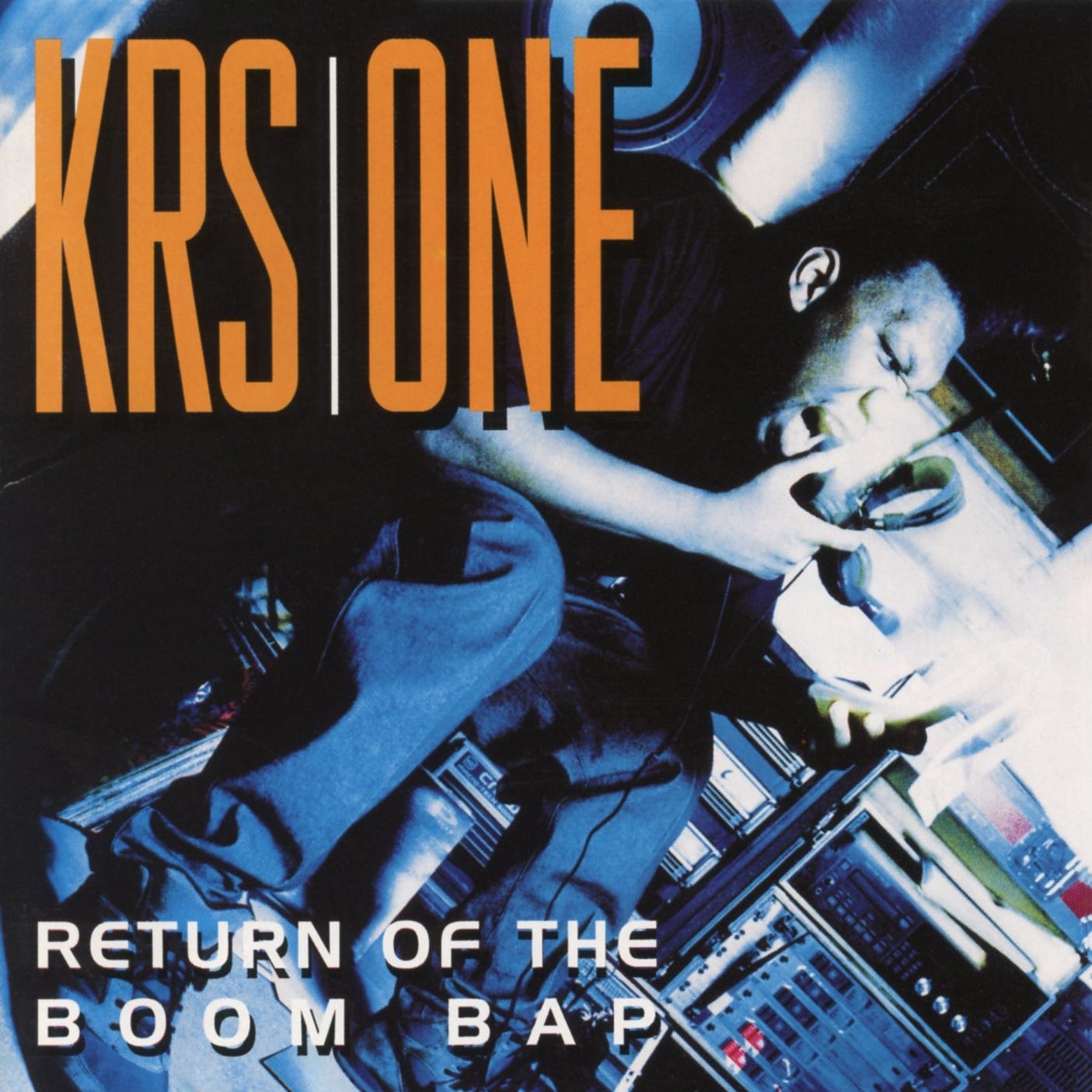Retrospective Review: Return of the Boom Bap by KRS-One
KRS-One breaks out on his own with his debut album.
KRS-One gained prominence as the magnetic frontman of Boogie Down Productions (BDP), a group that left a mark on hip-hop’s golden era from 1987 to 1992. During this period, BDP released six projects, including a live album, each contributing to what many consider one of the most remarkable runs in hip-hop history. However, the dissolution of BDP in the early ‘90s could have signaled the end for many artists but not for KRS-One.
He seized this transitional moment to redefine himself, launching a solo career with the release of Return of the Boom Bap in 1993. This album arrived when KRS-One faced career challenges, including declining record sales and a controversial altercation with the alternative rap group P.M. Dawn. Despite these hurdles, KRS-One was undeterred. He viewed the breakup of BDP and the challenges that followed not as setbacks but as opportunities for reinvention.
Return of the Boom Bap is KRS-One’s homage to hip-hop’s raw, drum-centric roots. The album diverges from the more philosophical and socially conscious themes that characterized his work with BDP. Instead, it zeroes in on the elemental aspects of the genre, focusing on lyrical dexterity and the sheer power of beats. KRS-One uses this project to showcase his unparalleled skill as an emcee, delivering lines with a hunger that rivals the fervor of his earliest days in hip-hop. The album departs from his previous work’s loftier, message-driven content, opting for a more skills-based lyrical approach. This shift is not diluting his art but rather a recalibration, a return to the foundational elements that make hip-hop a compelling medium for storytelling, social commentary, and braggadocio.
The album’s production is a collaborative endeavor that significantly contributes to its enduring appeal. DJ Premier plays a pivotal role in shaping the album’s landscape. Although initially slated to produce most of the album, DJ Premier’s influence is felt most strongly in the sequencing and the project’s tone. His work on tracks like “KRS-One Attacks” and “Outta Here” sets the stage for what is a compelling auditory experience.
However, DJ Premier isn’t the sole architect behind the album’s sound. Showbiz and Kid Capri also lend their talents, each bringing a unique flavor that complements KRS-One’s lyricism. Showbiz’s production on “Sound of da Police” captures the chaos and urgency of its subject matter, while Kid Capri’s jazz-infused contributions offer a mellower counterpoint to the album’s harder edges.
The album opens with “KRS-One Attacks,” a track that serves as a sonic manifesto, setting the tone for what’s to come. DJ Premier’s scratch collages over a soulful piano and horn loop create an atmosphere of anticipation. “Outta Here” follows, a track that is not just a recounting of KRS-One’s origins but also a critique of materialism in hip-hop. The heavy bassline thump, courtesy of DJ Premier, adds a layer of gravitas to the narrative. “Black Cop” and “Sound of da Police” are tracks that confront the issue of police brutality head-on. The former employs a Jamaican patois, while the latter is known for its memorable hook, “Whoop! Whoop! That’s the sound of the police!” Both tracks capture the chaos and tension often accompanying police presence in predominantly African-American communities.
Return of the Boom Bap arrived when hip-hop grappled with its identity, caught between commercial aspirations and its roots in social commentary. The album didn’t shy away from addressing pressing issues like police brutality, as evidenced by tracks like “Black Cop” and “Sound of da Police.” These songs resonated with marginalized and targeted communities, offering a form of musical protest. The album also had a hand in shaping the “boom bap” subgenre of hip-hop, characterized by its focus on hard-hitting drums and intricate rhyming—a style that has influenced countless artists in the years that followed.
Three decades after its release, the album remains a touchstone in the history of hip-hop. It solidified KRS-One’s reputation as a formidable solo artist and influenced a new generation of emcees and producers who sought to marry lyrical depth with compelling beats. The album’s focus on social issues, particularly police brutality, has kept it relevant, as these topics remain at the forefront of public discourse. While KRS-One has released numerous projects since Return of the Boom Bap, this album is often cited as one of his most impactful works.


